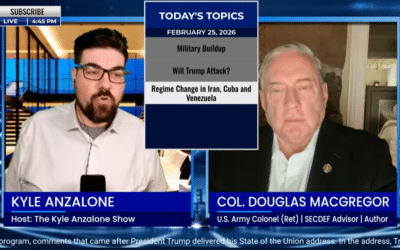Sometimes you have to admire the way the mainstream media covers the news. Their commitment to obscuring and omitting context really is second to none.
The result is coverage that is both interesting and confusing–coverage like NBC’s take on the Ohio State University attack.
For anyone that hasn’t heard, the basic summary is that a student at Ohio State University went on a rampage with a large knife at the campus. Thankfully, it appears that no one besides the alleged perpetrator was killed at this point. The suspect in the case was a legal permanent resident who was originally from Somalia. He fled Somalia in 2007 with his family as refugee. The suspect also apparently self-identified as a Muslim.
Here’s how NBC opened its write-up on the incident (emphasis mine):
An Ohio State University student posted a rant shortly before he plowed a car into a campus crowd and stabbed people with a butcher knife in an ambush that ended when a police officer shot him dead, a law enforcement official said.
Abdul Razak Ali Artan, 18, wrote on what appears to be his Facebook page that he had reached a “boiling point,” made a reference to “lone wolf attacks” and cited radical cleric Anwar al-Awlaki.
“America! Stop interfering with other countries, especially Muslim Ummah [community]. We are not weak. We are not weak, remember that,” the post said.
Two hours before that, a cryptic post on the page said: “Forgive and forget. Love.”
Officials cautioned that they have not determined a motive for the ambush, which sent 11 people to the hospital Monday morning. A senior law enforcement official told NBC News that investigators are trying to determine whether Artan had personal problems or something else that might have pushed him over the edge.
The article later went on to note that the suspect was a refugee from Somalia who fled in 2007. He would have been 9 or 10 years old at the time.
So taking the NBC story at face value, we have the following points:
- The suspect posted a rant shortly before his attack in which he said he reached a “boiling point”.
- As part of said rant, the suspect condemned US foreign policy.
- The suspect was a refugee from a war-torn country.
- No one knows what his motive was.
Of course, NBC fails to mention the seemingly important fact that US foreign policy happens to be responsible for creating Somali refugees circa 2007. In other words, at first blush, it appears the suspect was decrying a foreign policy that he and his family members were victimized by firsthand.
It goes without saying that these circumstances do not in any way justify the attack. The suffering of innocent Somalis at the hands of US intervention obviously does not justify random acts of violence against innocent Americans. But it may help us understand why Americans get targeted by such violence in the first place–and why the perpetrators so often have a connection to one of the countries that has been destabilized by the depredations of US foreign policy, past or present.
Given how recently this attack happened, it’s entirely possible that new facts could easily emerge that change the whole narrative. Maybe, the suspect was misidentified or the rant was done by someone else entirely. Many different elements of the story could change.
But taking the facts as we understand them today, the history of US intervention in Somalia is very important context, given the suspect’s expressed opinions. And to provide that context, I can think of few better sources than this excellent summary provided by The Libertarian Institute’s very own Scott Horton.
In the article, Horton notes that the US backed Ethiopia’s invasion of Somalia in 2006, throwing the country into chaos. This war is very likely the reason that the suspect and his family had to flee Somalia in 2007.
Again, none of this about justifying the tragedy that took place today. The purpose is to note that US foreign policy is probably more effective at inspiring terrorism than combating it. As the facts on this story continue to come out, it may well prove to be the latest piece of evidence for this claim.






























![The Kyle Anzalone Show [GUEST] Dave DeCamp: BREAKING: Tucker Carlson detained in ISRAEL! – Trump’s Iran Strategy Exposed!](https://offload-wp-files.sfo3.digitaloceanspaces.com/2026/02/Screenshot-2026-02-27-115531-400x250.png)
